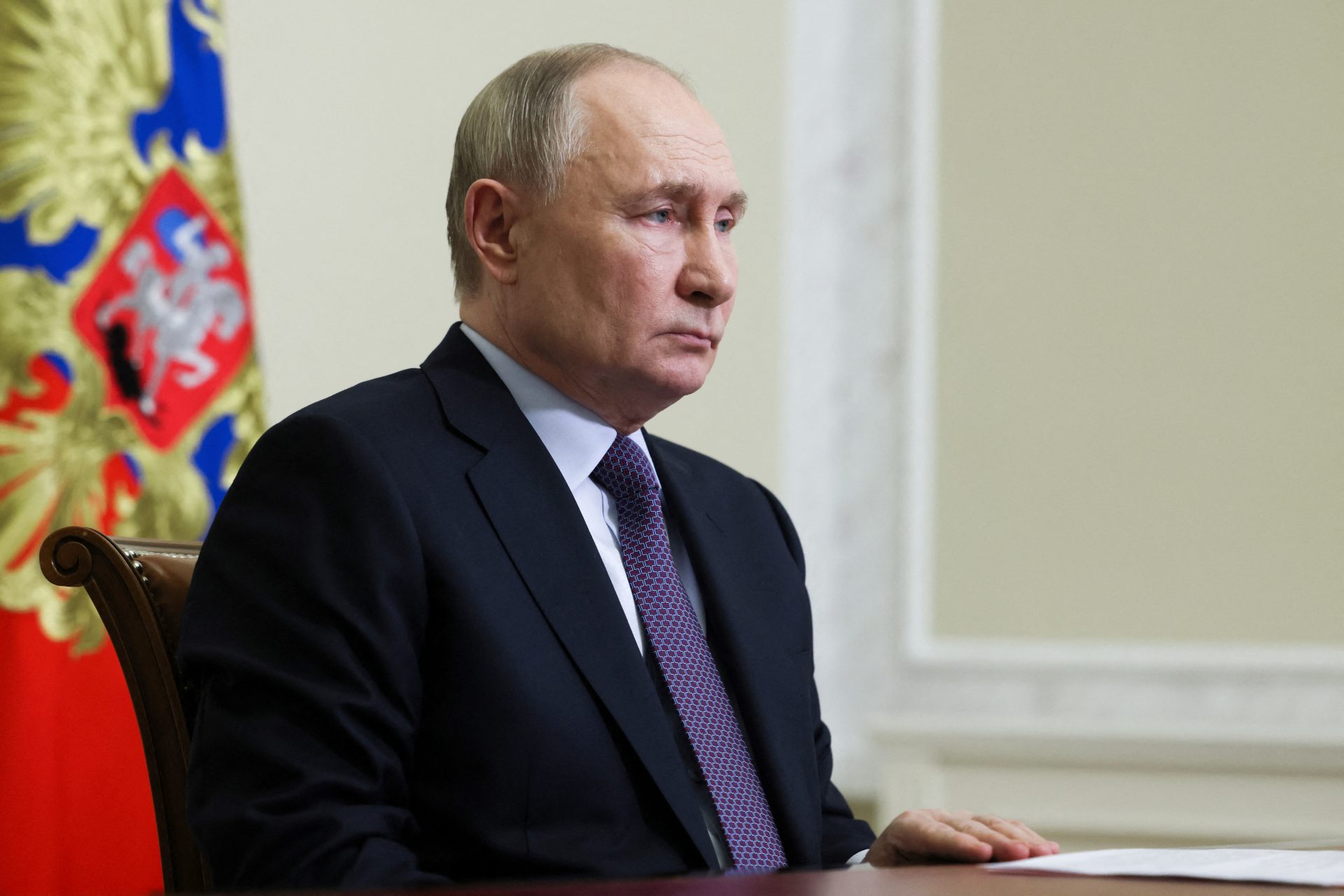Zelensky reveals his true thoughts on Putin’s power after the coup
Vladimir Putin’s response to the armed rebellion that made its way to within a hundred and twenty miles of Moscow was “weak” and indicated the Russian President’s power was “crumbling” according to scathing comments from Ukraine’s Volodymyr Zelensky.
In an exclusive interview with CNN’s Erin Burnett in Odessa, Ukraine’s embattled leader revealed his thoughts about Wagner Group founder Yevgeny Prigozhin’s armed mutiny in Russia and Putin’s response to the 48-hour revolt that saw troops march on Moscow.
Burnett asked Zelensky if he had witnessed any changes in how Putin was acting or in the Russian President’s behavior since Prigozhin launched his coup and Zelensky went on to share what might be Kyiv’s honest view of the situation it sees unfolding in Russia.
“We see the reaction after certain Wagner steps. We see Putin’s reaction. It’s weak,” the Ukrainian President told Burnett according to a translation of the interview from CNN.
“Firstly, we see he doesn’t control everything. Wagner’s moving deep into Russia and taking certain regions shows how easy it is to do,” Zelensky added to his analysis.
Zelensky went on to say that Putin wasn’t in control of the situation in Russia’s various regions, specifically saying that he doesn’t control the security situation in the regions because his entire Russian army was located outside rather than inside of Russia.
Prigozhin and his Wagner Group mercenaries had such an easy time in their advance toward Moscow because there were no troops available to stop them. “Who could have stopped them?” Zelesneky asked Burnett before saying Putin lacked control in Russia.
“We understand Putin doesn’t control the regional policy and he doesn’t control all those people in the regions,” Zelnesky added. “So all that vertical of power he used to have is just crumbling down.” A statement which could prove to be quite prophetic in the future.
Burnett seized on Zelensky’s response to ask him if he believed that Putin was still fully in charge of Russia’s military—a question Zelensky answered by saying that he didn’t think Putin controlled all the processes but he was the one giving the army its orders.
“He gives orders to the commanders. It’s understood they are scared to lose their jobs. But he doesn’t understand and doesn’t control the middle layer of the Russian military, nor the lower rank officers and soldiers,” Zelensky said, though that was just his opinion.
It’s difficult to say how much control Putin actually has over the middle and lower-ranked officers and soldiers but political analysts and government officials alike seem to agree with Zelensky’s interpretation that Prigozhin’s coup revealed weakness inside Russia.
U.S. Secretary of State Anthony Blinken said in the immediate aftermath of Prigozhin’s coup that “it was a direct challenge to Putin’s authority” in an interview with Face the Nation host Margaret Brennan on CBS News, adding it raised “profound questions.”
“It shows real cracks. We can't speculate or know exactly where that's gonna go. We do know that Putin has a lot more to answer for in the weeks and months ahead,” Blinken continued—though we will still have to wait to see the full fallout from Wagner’s uprising.
Yevgeny Prigozhin’s short-lived rebellion may not have achieved the overthrow of Putin nor changed the status quo in Moscow’s higher echelons as of yet but the failed mutiny came as a major reprieve for Ukraine as it embarked on its eastern counter-offensive.
The Wagner Group has scored Russia’s only significant win in the last several months of the war, capturing the city of Bakhmut in mid-March after more than nine months of grinding war that saw tens of thousands of casualties for Prigozhin’s mercenary force.
Steve Ganyard is a retired U.S. Marine Corps Colonel and ABC News contributor who explained the most important thing to come out of Prigozhin’s coup was that the Wagner Group would be taken off the battlefield, and “that's good for the Ukrainian fight."
"The Wagner troops were among the most effective and among the most capable on the battlefield,” Colonel Ganyard continued, so their removal from the field could prove to be one of the significant turning points of the entire war.
More for you
Top Stories






























